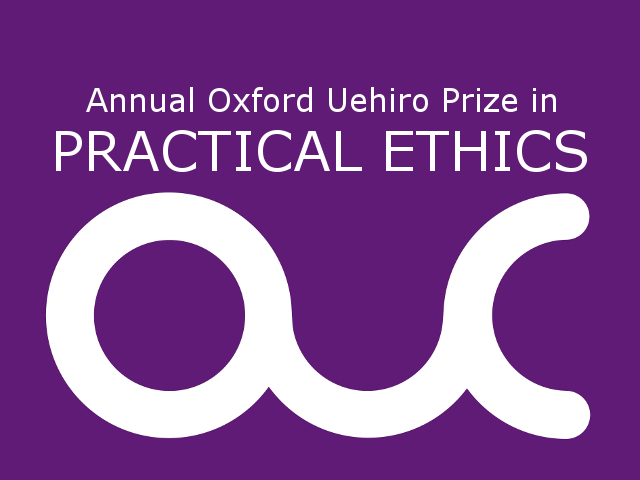Announcement of the Finalists of the 10th Annual National Oxford Uehiro Prize in Practical Ethics
The 10th Annual National Oxford Uehiro Prize in Practical Ethics Final Presentation and Reception HT24 Week 9, Tuesday 12th March, 5:30pm – 7:45pm. We are pleased to announce the four finalists of the 10th National Oxford Uehiro Prize in Pr…
Read MoreWhy a US State Court Ruling on the Rights of Children Before Birth is Unjust
Dominic Wilkinson, University of Oxford. In 2020, in a medical facility in one of the southern states of the US, a patient wandered into an unsecured nursery for extremely premature children. Unfortunately, the patient managed to accidental…
Read MoreObjective Morality
What could be better to relaunch our new blog than a picture of my favourite socks? “Socks!?’, I hear you cry. But these are no ordinary socks. They are Soc. Soc. Socks, presented to me after not so long ago I was invited to participate in …
Read MoreCross Post: What’s wrong with lying to a chatbot?
Written by Dominic Wilkinson, Consultant Neonatologist and Professor of Ethics, University of Oxford This article is republished from The Conversation under a Creative Commons license. Read the original article. Imagine that you are on the …
Read MoreCross Post: Spectator TV – Should the government ban smoking? With Kate Andrews and Dominic Wilkinson
Oxford Uehiro Centre’s Professor Dominic Wilkinson discusses the government’s proposal to ban smoking with The Spectator.
Read MoreAI Authorship: Responsibility is Not Required
This is the fifth in a series of blogposts by the members of the Expanding Autonomy project, funded by the Arts and Humanities Research Council. by Neil Levy AI is rapidly being adopted across all segments of academia (as it is across much …
Read MorePolitical Campaigning, Microtargeting, and the Right to Information
Written by Cristina Voinea 2024 is poised to be a challenging year, partly because of the important elections looming on the horizon – from the United States and various European countries to Russia (though, let us admit, surprises there…
Read MoreCross Post: Should A Health Professional Be Disciplined For Reporting An Illegal Abortion?
Written by: Prof Dominic Wilkinson, University of Oxford This article is republished from The Conversation under a Creative Commons license. Read the original article. There have been several high-profile cases in the last year of women in …
Read MoreExpertise and Autonomy in Medical Decision Making
Written by Rebecca Brown. This is the fourth in a series of blogposts by the members of the Expanding Autonomy project, funded by the Arts and Humanities Research Council. This blog is based on a paper forthcoming in Episteme. The full text…
Read MoreIs There a Duty to Vote?
Written by Joseph Moore This new year is a presidential election year in my home country of the United States. And so, there is likely to be no shortage of U.S. political news and commentary surrounding candidates’ pasts, their present comm…
Read More


